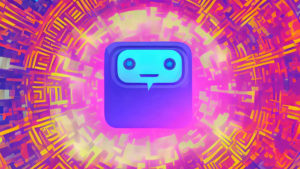OpenAI, an artificial intelligence research group, has released a beta version of ChatGPT, a chatbot based on the GPT-3.5 language model. ChatGPT has drawn interest while still in the testing phase due to its potential, with OpenAI suggesting it as an alternative to Google.

ChatGPT is a chatbot that employs deep learning to generate text that reads like human language and is based on the GPT-3.5 language model. Through the use of AI, ChatGPT is able to provide both technical and non-technical responses to numerous questions in a natural way. This makes it useful for a variety of tasks, from helping with homework to providing answers to technical inquiries.
ChatGPT is an AI-driven chatbot tool that combines the comprehensive and expansive capabilities of Wikipedia with the analytical and poetic powers of a researcher and poet. It can write detailed and lengthy pieces on any subject, from the causes and effects of the French Revolution to why nihilism should be adopted as a personal philosophy. It can even write an epic poem about the importance of brushing your teeth!
What makes ChatGPT stand out is its ability to generate lengthy and intricate text. Powered by GPT-3, one of OpenAI’s language models that has been trained on billions of words to learn how to effectively create natural language text, ChatGPT is a superior alternative to other text generators, which are limited in scope and detail.
ChatGPT can be used to create SEO-optimized marketing copy, blog posts, and even AI art, which uses natural language to construct unique images based on material pulled from the internet and other sources. Whilst it would unlikely be able to pass as the work of a college-level philosopher in an essay about nihilism, the text generated by ChatGPT could certainly be mistaken for the work of an advanced high school student. In other words, OpenAI has created ChatGPT to act as a personal tutor who is well-versed in all subject matters and can provide natural, intuitive answers to any query.
ChatGPT is a system that is trained to continue conversations. It was designed to understand relationships and has the capacity to comprehend code. It is also known for providing more extensive responses compared to other systems like Google Assistant.
ChatGPT’s ability to provide detailed answers to complex questions has a few advantages. For example, it can converse about more than just weather forecasts—it can even make a case for which player would be the best left fielder in baseball history and why.
However, it does have its shortcomings. ChatGPT does not always cite where it sources its information from, and its answers might not be accurate. Thus, while it speaks with authority, experts can still point out flaws in its arguments.
ChatGPT has the potential to give incorrect or nonsensical answers, even when the input is valid. According to OpenAI, fixing this issue is difficult because there is no single source of truth in the data they use to train the model, and supervised training can generate misleading results as the ideal answer depends on what the model knows rather than what the human demonstrator knows.
